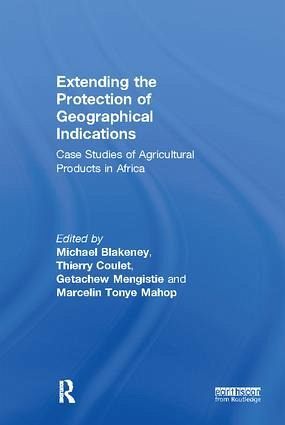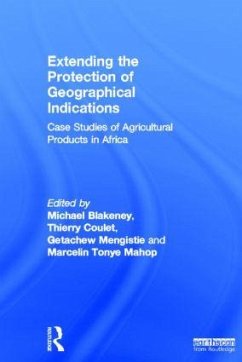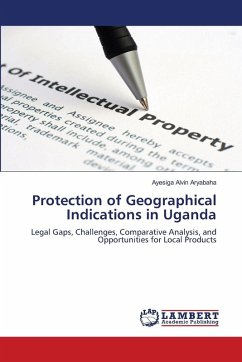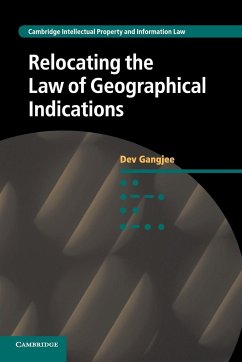
Extending the Protection of Geographical Indications
Case Studies of Agricultural Products in Africa
Herausgeber: Blakeney, Michael; Mengistie, Getachew; Coulet, Thierry
Versandkostenfrei!
Versandfertig in 1-2 Wochen
62,99 €
inkl. MwSt.
Weitere Ausgaben:

PAYBACK Punkte
31 °P sammeln!
The TRIPS Agreement (for trade-related intellectual property rights) provides for the general protection of geographical indications (GIs) of product origin, including for example the special protection of wines and spirits and for the creation of a multilateral register for wines. The African Group of countries has been in the forefront of countries agitating in the World Trade Organization TRIPS Council for the extension of this special protection and of the multilateral register to industries which are of interest to developing countries, primarily agriculture. The so-called "extension ques...
The TRIPS Agreement (for trade-related intellectual property rights) provides for the general protection of geographical indications (GIs) of product origin, including for example the special protection of wines and spirits and for the creation of a multilateral register for wines. The African Group of countries has been in the forefront of countries agitating in the World Trade Organization TRIPS Council for the extension of this special protection and of the multilateral register to industries which are of interest to developing countries, primarily agriculture. The so-called "extension question" is the central feature of the Doha Development Agenda at both the WTO and World Intellectual Property Organization. This book provides some empirical evidence and applied legal and economic reasoning to this debate. It provides both a general review of the key issues and a series of case studies from six Anglophone and four Francophone countries in Africa. These focus on major agricultural commodities such as coffee, cotton, cocoa and tea, as well as more specific and local products such as Argan oil and Oku white honey.













